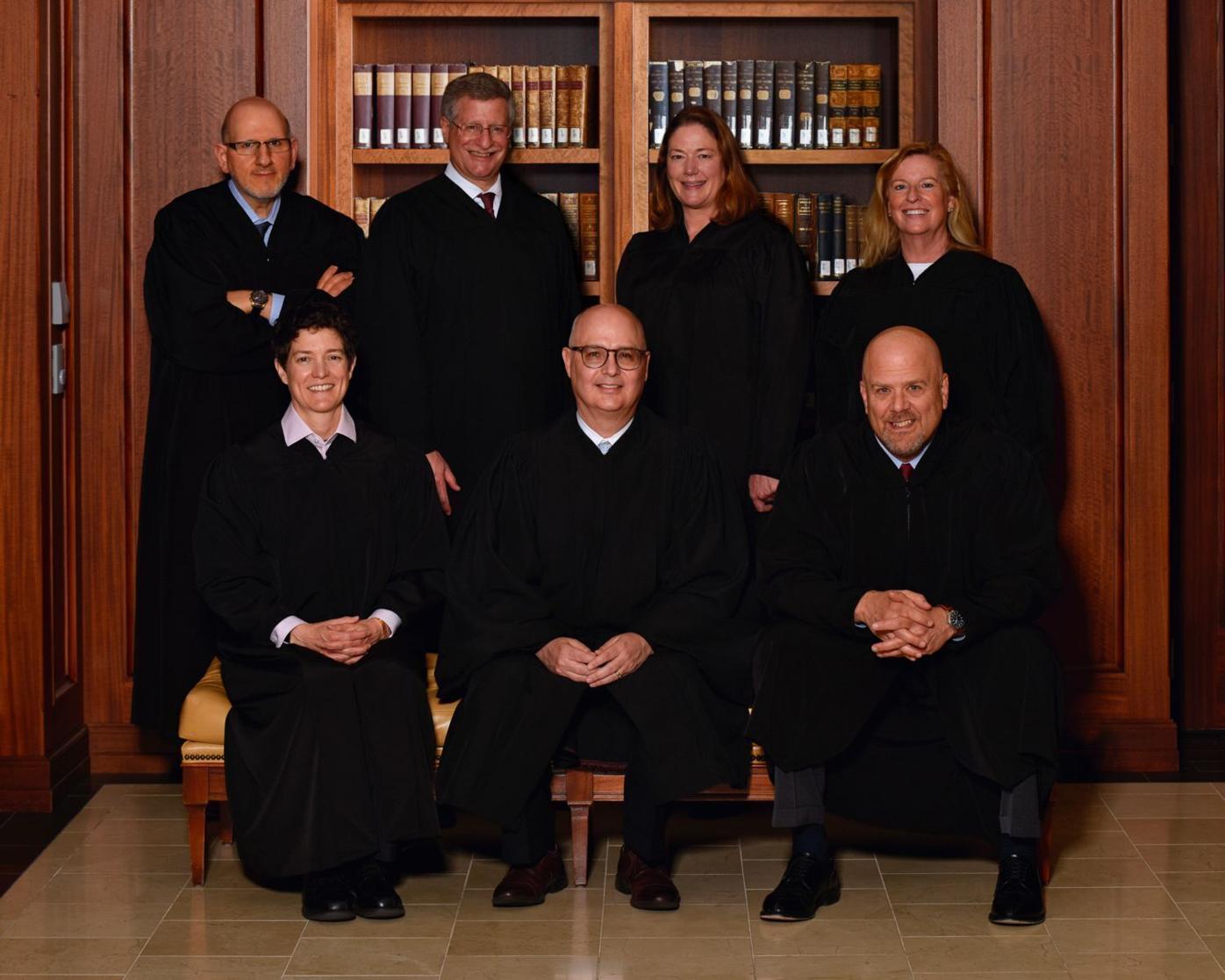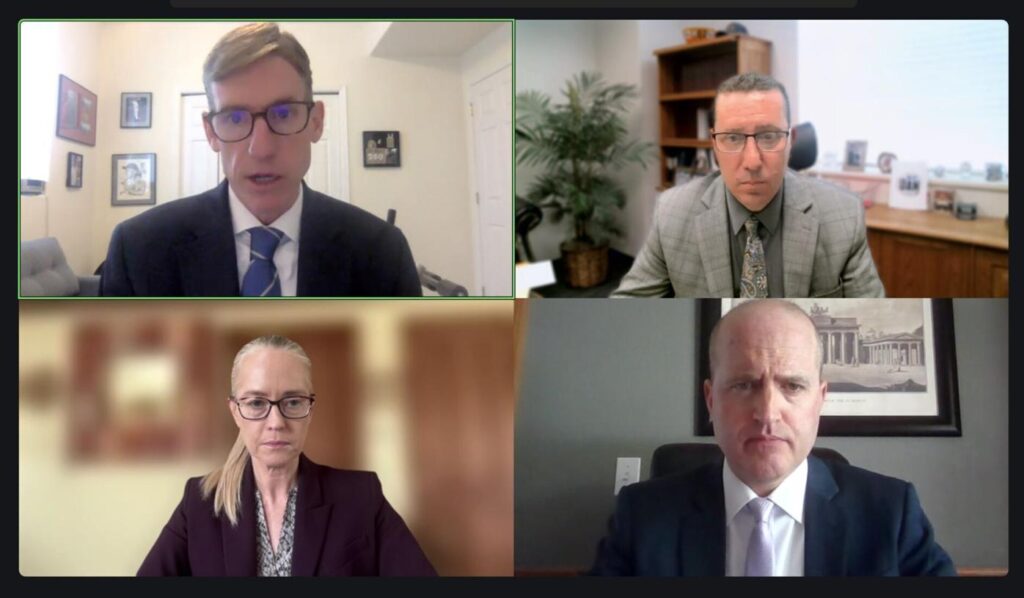Colorado Supreme Court tells judges it’s been cooperating with investigation all along; discipline commission says otherwise

COURTESY PHOTO
The Colorado Supreme Court — days after it was revealed it was the target of a subpoena by the state commission that investigates judges — told jurists across the state that it had been cooperating with the body all along, intimating allegations that it was doing otherwise were inaccurate.
The Colorado Commission on Judicial Discipline, however, says it’s standing by its allegations.
In a two-paragraph email signed by the court but sent statewide to all Judicial Department employees and judges from Chief Justice Brian Boatright’s state email account, the justices explained that the court has not offered any public explanation about the allegations because its rules precluded it.
“We imagine many of you may have read a recent news article that included an allegation from the Colorado Commission on Judicial Discipline … that the Department had not voluntarily produced documents requested by the Commission,” the Wednesday email says. “Many of you may wonder why you have not heard any response from our Court or the Department. We acknowledge that it is frustrating not to hear ‘the other side of the story.’ We want to explain our public silence.”
The email explains that all commission proceedings are to be kept confidential and that “neither the Commission nor the Court should be commenting about ongoing investigations or proceedings.”
“From the beginning, we committed to cooperating with all investigations,” the email says. “We have honored that commitment and will continue to do so.”
It was signed, “The Colorado Supreme Court.”
The commission on Wednesday said it had not changed its mind, calling into question the court’s latest assertion of cooperation.
“We stand behind the statements we’ve made previously, including the statements made at the legislative SMART hearings,” the commission said in a joint statement to The Denver Gazette.
The dustup is the result of public comments from the discipline commission, a rare occurrence for what is typically a very secretive body, that the court was the reason for difficulties it was having in gathering information about a two-page memo that contained allegations of widespread misconduct by judges that had been covered up.
The memo is at the center of a scandal in which a former high-ranking department official was given a $2.5 million contract in order to avert a tell-all sex discrimination lawsuit that threatened to expose the judiciary’s misdeeds.
The commission this week said it had been forced to compel the Judicial Department — and by extension the state’s highest court — to produce documents and other evidence in its inquiry into the memo’s contents because it had not been forthcoming with the information. Though the commission did not say it had issued a subpoena, it is the only method available to it to compel testimony or the production of evidence.
Last week, commission chairwoman Elizabeth Espinosa Krupa, an attorney, and vice-chairman El Paso County District Judge David Prince told legislators that the Supreme Court has been less than helpful in its investigation, particularly with what its investigators could look into.
Krupa added that despite Boatright’s earlier assertions to legislators that the court was giving “unfettered access” to a pair of companies hired to investigate the scandal, it didn’t include the commission, saying “We don’t have that access and we’ve not been given it.”
Krupa, Prince and Boatright separately appeared before a joint hearing of the Senate and House judiciary committees in an annual event known as SMART (State Measurement for Accountable, Responsive, and Transparent Government Act) hearings where departments and agencies give overviews of its plans for the year.
Legal scholars have said the clash sets up an historic showdown because the Colorado Constitution directly establishes the judiciary as its third branch of government, but also separately creates the commission to investigate and discipline judges. But the Supreme Court, which sits atop the department, writes the rules that govern the commission’s work and controls its purse strings.
The commission requested legislators to create an autonomous Office of Judicial Discipline because the court had not provided any funding for the commission to pay attorneys it hired to investigate the scandal. The commission frequently relied on investigators from the Office of Attorney Regulation Counsel, which disciplines lawyers, but that body also hired its own outside investigators to look into the scandal.
A critical component of the commission’s subpoena is how it would be enforced if the court doesn’t comply.
The commission’s own rules — much of which are drafted and approved by the Supreme Court — require the high court to appoint a “special master” to oversee such a proceeding. The special master would render a decision that must go before the Supreme Court to uphold or dismiss.
The discipline commission has 10 members: two district and two county court judges named by the Supreme Court’s chief justice; two attorneys named by the governor; and four citizens who are neither attorney nor judge, also appointed by the governor.
The commission signed an agreement with the Judicial Department in 2010 that said the department would turn over any records of allegations of misconduct by judges no matter the result of their own internal inquiries.
Judges, however, follow their own rules of professional conduct which require them to turn over any records of allegations of misconduct directly to the commission when they have first-hand knowledge of them.
When the contents of the memo were divulged in February 2021, the commission wrote Boatright to say its records in the past five years didn’t reflect any of the allegations it contained about judges and wanted to know why not, according to copies of the correspondence obtained by The Gazette.
Additionally, the commission has said it was never told about the memo itself until newspaper reports uncovered it.
At least six investigations have been launched into the memo and the circumstances surrounding it: two by the Judicial Department, one by the judicial discipline commission, one by the state Office of Attorney Regulation Counsel which disciplines lawyers, one by the FBI, and one by the state auditor. All are pending.
David Migoya can be reached at david.migoya@gazette.com











